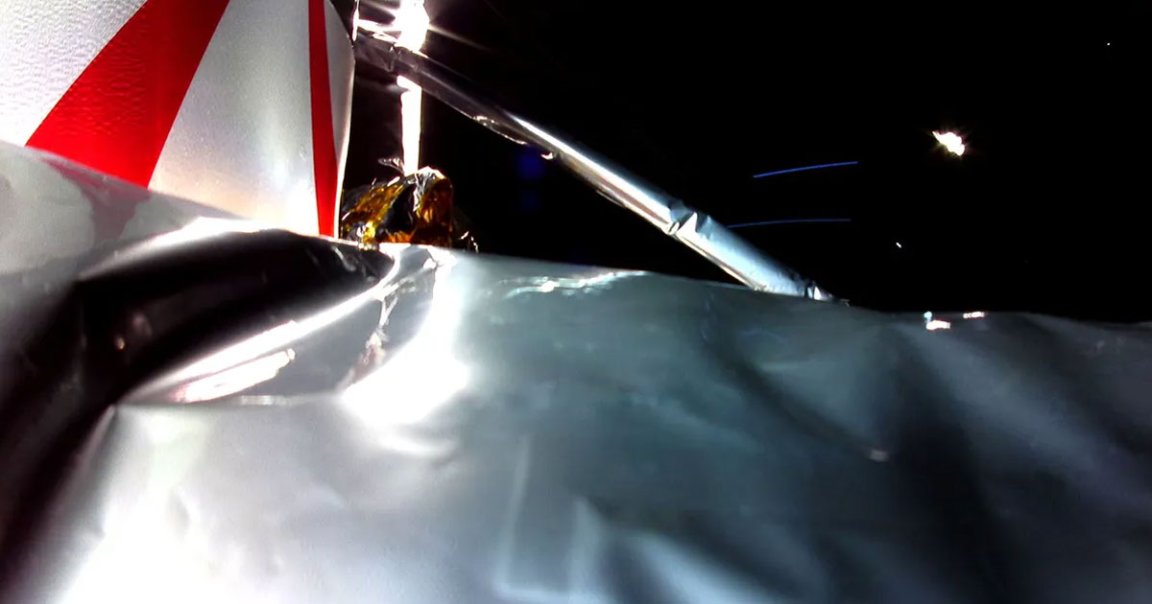
Mission Critical
It was meant to be the first US Moon lander to softly touch down on the lunar surface in over half a century.
But shortly after launch, the Peregrine lander — built by Pittsburgh-based spaceflight company Astrobotic — suffered a failure, according to an update posted to X-formerly-Twitter, “causing a critical loss of propellant.”
As a result, the company is now racing to make the most of the situation, though a full Moon landing is now sounding more or less impossible.
“We are currently assessing what alternative mission profiles may be feasible at this time,” the company wrote.
It’s a sad state of affairs. In the most recent update, the company shared the first photo the lander snapped in space, showing a creased layer of insulation, which may have contributed to the spacecraft’s ongoing issues.
It’s technically not lights out just yet. The lander’s “battery is now fully charged,” the company noted in a statement , “and we are using Peregrine’s existing power to perform as many payload and spacecraft operations as possible.”
System Anomaly
So what exactly went wrong? While Astrobotic is still poring over the data, the recently shared image shows a “disturbance” of the spacecraft’s insulating layer, which “aligns with our telemetry data that points to a propulsion system anomaly.”
The spacecraft launched atop United Launch Alliance’s brand-new Vulcan Centaur rocket. While the launch itself went by relatively smoothly, Peregrine was shaken following upper-stage separation, which meant it couldn’t properly orient itself toward the Sun to charge its solar panels.
However, based on the company’s estimates, the lander could keep itself stable using its Attitude Control System into Wednesday morning.
“At this time, the goal is to get Peregrine as close to lunar distance as we can before it loses the ability to maintain its Sun-pointing position and subsequently loses power,” the company wrote in a late Monday statement.
More on the lander: Private NASA-Funded Moon Lander Is in “Critical” Condition